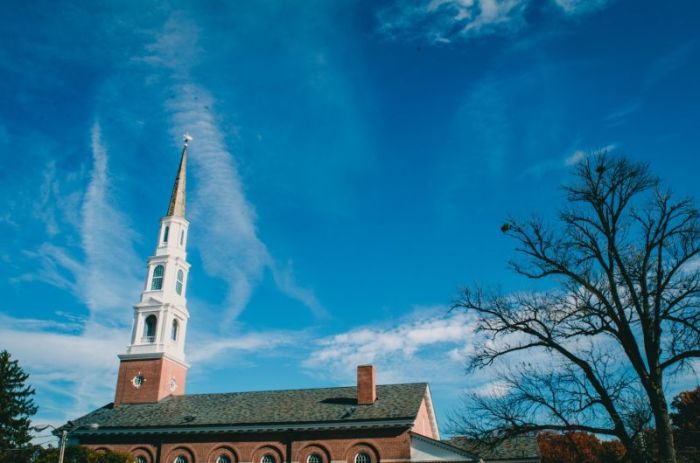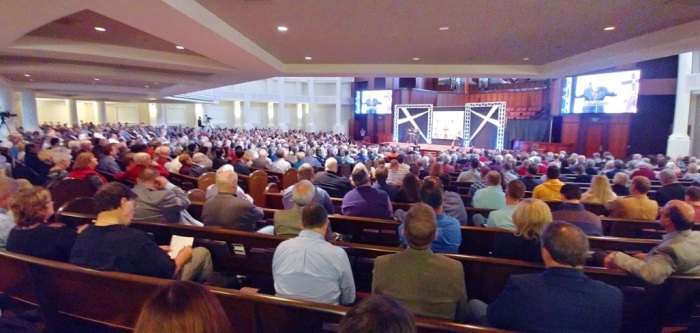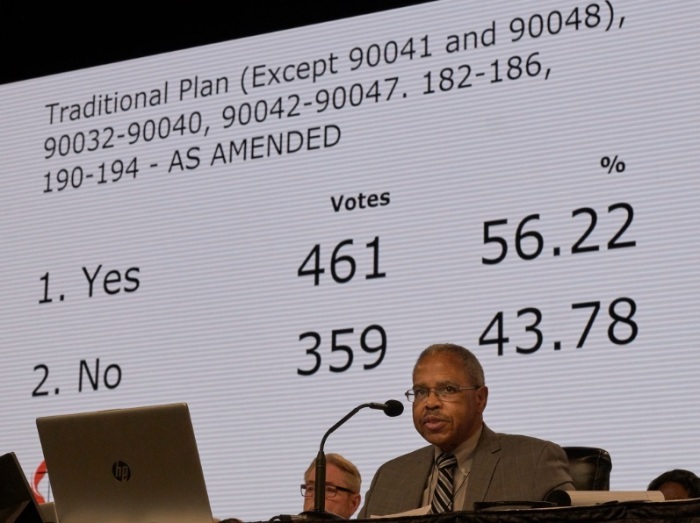Hundreds of congregations joining conservative United Methodist association

For retired United Methodist Church pastor David Ford, the calling to establish a new congregation began in the summer of 2010.
Describing it as a “leading of God,” Ford retired from the UMC in 2016 and began to work on a Doctor of Ministry degree. He officially surrendered his ordination in 2018.
Following discernment and prayer and “providential circumstances,” Ford and his wife moved to Charlottesville, Virginia in 2017 to begin plans to start a new church.
Known as Mission Charlottesville, their first publicly promoted service was last December. They meet weekly at Jackson P. Burley Middle School and have an average worship attendance of about 30 people.
In an interview with The Christian Post, Ford said that Mission Charlottesville was built on “a missional model,” with the aim of maintaining “Wesleyan theology,” and to be overseen by a team “comprised of those gifted by the Holy Spirit to serve as apostle, prophet, evangelist, pastor, teacher, and exhorter, to the end of making disciples of Jesus Christ for the advancement of the kingdom of God.”
Ford also explained that while he is no longer an ordained UMC clergyman, he and his church maintain a connection to a fairly new theologically conservative United Methodist group known as the Wesleyan Covenant Association.
“I am a charter clergy member of the Wesleyan Covenant Association beginning in 2016 and remain a covenanted, clergy member of the WCA to date,” explained Ford.
“Mission Charlottesville became a covenanted congregation in the WCA in 2018 and remains a covenanted congregation to date.”
Community and Encouragement

Mission Charlottesville is not alone. Since its founding nearly three years ago, the WCA has seen hundreds of congregations decide to associate with the theologically conservative organization.
WCA President Keith Boyette explained to CP that both individuals and congregations can become members, provided they adhere to the organization’s Statement of Faith, Statement on Biblical Authority, and Statement of Moral Principles, available for viewing on their website.
There were multiple benefits for a congregation to become a member of the WCA, noted Boyette, among them joining a network of like-minded United Methodists.
“Through the WCA, they are connected to other like-minded congregations for community and encouragement,” he explained. “They receive analysis of the issues facing the UM Church and advocacy through the WCA on those issues.”
“They are beneficiaries of the WCA’s contingency planning as we work to ensure that there is a landing place for churches committed to the historic Christian faith in the Wesleyan tradition should such a landing place be needed as the UM Church continues to experience conflict around important issues.”
Boyette noted that out of the hundreds of member congregations, fewer than ten were not affiliated to the United Methodist Church.
Mission Charlottesville is one of that small number, with Ford describing to CP the things he can do in the organization as well as future and current plans.
“As a covenanted, clergy member, I can serve on the regional board of the WCA, like any other clergy member, and will serve as a delegate to the upcoming Legislative Assembly of the WCA,” Ford noted.
“I serve as the second Vice-President of the Virginia WCA and I will serve as a delegate to the upcoming 2019 Legislative Assembly of the WCA in Tulsa, Oklahoma.”
CP asked Boyette for a list of member congregations, he declined responding that the WCA does not disclose membership information without first getting consent from their members.
While CP was able to locate a few congregations that identified as members of the WCA, none of them returned comment by press time.
No Competition Intended

Over the past several years, the United Methodist Church has experienced intense debate over the denomination’s official stance on LGBT issues.
The UMC Book of Discipline identifies homosexuality as “incompatible with Christian teaching,” prohibits clergy from performing same-sex marriages, and bans noncelibate homosexuals from being ordained.
Despite this, theologically liberal members of the UMC have actively campaigned against the Book of Discipline language, introducing legislation aimed at removing the positions and refusing to enforce the rules, among other forms of resistance.
A special session of General Conference held in February resulted in the passage of “The Traditional Plan,” which reaffirmed these positions and promised stricter enforcement of the rules.
Rather than resolve the debate, many liberal UMC groups and individuals have pledged to keep resisting and to try and change the language at the 2020 General Conference.
Amid the growing theological divide, some have accused the WCA and other conservative bodies of fomenting schism within the mainline denomination.
Some of these allegations appear to have fallen upon Mission Charlottesville. The United Methodist News Service published an article in July noting that local clergy found the new church suspicious.
For example, the Reverend Robert Lewis, pastor of Hinton Avenue United Methodist Church, which is located fewer than 5 miles from where Mission Charlottesville meets, told UMNS that he was “very annoyed” at the new church's presence.
“It’s been incredibly out in the open and completely unashamed of undermining the ministry of The United Methodist Church,” Lewis claimed.
The Reverend Phil Woodson, another pastor at a local UMC congregation, told UMNS that he believed Mission Charlottesville was “a direct attempt to compete with The United Methodist Church.”
Charlottesville District Superintendent Danny J. Kesner, whose office oversees the local UMC congregations, was contacted for this story about the matter, however he declined to provide comment.
Ford took exception to the allegations, telling CP that he didn't launch Mission Charlottesville “to compete with United Methodist churches or any other church for that matter.”
“When churches compete with one another, it is indicative that they are seeking to build their kingdoms, instead of the Kingdom, which is repugnant to our God and Savior,” said Ford.
“Mission Charlottesville would have begun whether there was a WCA or not because the beginning of the leading began by inspiration of God back in 2010.”
Ford believed that “Mission Charlottesville should be welcomed as another faithful expression of the body of Christ that comes alongside of other faithful expressions of the body of Christ to do our part in making disciples of Jesus Christ in the mission field of the Charlottesville area and beyond.”
While some objections may exist at the local level, Virginia Conference Interim Bishop Peter Weaver expressed more openness to the presence of Mission Charlottesville and WCA member churches in general.
In an interview with CP, Interim Bishop Weaver explained the UMC has long recognized that “a deep commitment to the Body of Christ” is “larger than just the United Methodist Church.”
“I am grateful for any congregation that is trying to reach people for Christ,” he said. “I believe that there are some people who will respond to some congregations but not to other congregations, so I don’t see this as competition.”
“Even though there may be some differences, obviously between denominations, between local churches, as long as we are all working towards the same goal of bringing people to Christ, it’s really not in competition but in cooperation.”
Weaver told CP that he was unaware of any other issues between WCA member churches and other Virginia-based UMC congregations.
“We have United Methodist congregations that are related and supportive of the Wesleyan Covenant Association. That’s fine. We have congregations that are related and supportive of Reconciling Ministries, which tends to be a more progressive group. That’s fine,” continued Weaver.
“But again, we yearn that all persons try to respect each other, care about each other, love each other and serve Christ.”
















![[Ready to PUB] Christian psychologist: Kids must develop 'resilience' to fulfill God's purpose for them](https://cdn.christianpost.com/images/cache/thumbnail/25/92/259219_a_300_200_658_146.jpg)











